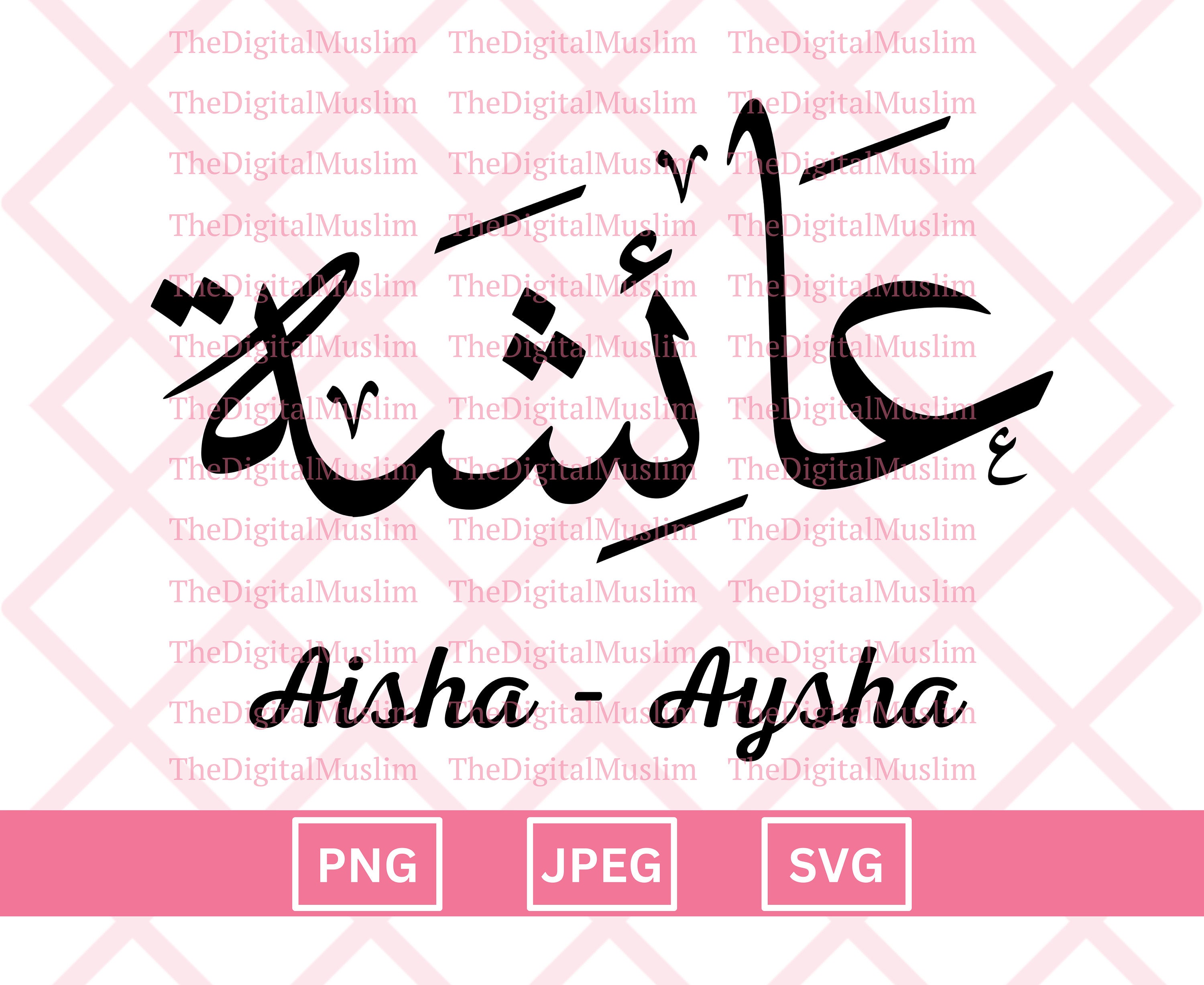What Race Is The Name Aisha? Exploring Its Rich Cultural Roots
Many names carry stories, and Aisha is certainly one of them, wouldn't you say? It's a name that sparks a lot of curiosity, and a common question people have is about its connection to race. This is a pretty interesting area to think about, as names often tell us a lot about history and where people come from.
You see, names usually reflect cultural or historical roots, rather than a specific race, and that's a key distinction, really. It’s a bit like asking what race a language is; languages are spoken by many people, regardless of their physical appearance, and names often work in a very similar way, actually.
The name Aisha, as a matter of fact, has a truly rich heritage, one that has spread across many lands and peoples over a very long time. So, to understand it better, we really ought to look at its origins and how it came to be so widely used, you know?
Table of Contents
- Getting Clear on "Race" and "Ethnicity"
- The Story Behind the Name Aisha
- Why a Name Isn't Tied to a Single Race
- Common Questions About the Name Aisha
- Exploring the Richness of Names and Identity
- Putting It All Together
Getting Clear on "Race" and "Ethnicity"
Before we look at the name Aisha specifically, it's pretty helpful to get a handle on what we mean when we talk about "race" and "ethnicity." These two terms are often used interchangeably, but they actually point to different things, especially when we consider how information is gathered, you know?
How We Talk About Race in the United States
In the United States, data on race is often gathered based on answers to a question about race asked of individuals, as a matter of fact. This is typically seen as a social definition, often connected to shared family lines and what are thought of as physical or biological traits, like skin color, for example. So, it's about visible differences, more or less, that people have come to associate with certain groups.
The U.S. Census Bureau, for instance, collects this kind of race data. They look at population counts for various race groups, and it’s a way of categorizing people based on these socially recognized physical characteristics. It's a system that has developed over time, and it's how we typically understand "race" in official settings, you know?
What "Ethnicity" Really Means
Now, "ethnicity" is a bit different, actually. When we talk about ethnicity, we're usually thinking about a social definition that's based on shared family lines, yes, but also on a common cultural background. This could include things like language, traditions, customs, or a shared sense of history, and it's not really about physical appearance at all, you see?
For example, when people in the United States are asked about their "民族" from documents like a household registration book or identity card, it often feels more like "Ethnicity" or "Ethnic Group" than "Race." It’s about cultural identity and where your people come from, in a cultural sense, which is a pretty big difference, really.
The Office of Management and Budget (OMB) has even looked at and updated its guidelines for collecting and reporting race and ethnicity information for federal agencies. This shows that there's a real effort to get these definitions right, to make sure we're talking about distinct things when we collect data on people, which is quite important, wouldn't you say?
The Story Behind the Name Aisha
So, with that clear distinction in mind, let's turn our attention to the name Aisha itself. It's a name that has a truly fascinating journey, and its origins are deeply rooted in a particular cultural and religious tradition, you know?
Roots in Arabic and Islamic Culture
The name Aisha (عائشة) comes from Arabic, and it has a beautiful meaning: "living," "prosperous," or "vital." It’s a very old name, and its significance is profoundly tied to Islamic history. Aisha bint Abi Bakr was, as a matter of fact, one of the wives of the Prophet Muhammad, and she is a highly respected figure in Islamic tradition, you see?
Because of this very important historical connection, the name Aisha became incredibly popular among Muslim communities across the globe. It's a name that carries a lot of cultural and religious weight, symbolizing life, well-being, and a connection to an important historical figure, which is quite powerful, really.
So, when you hear the name Aisha, it almost immediately brings to mind an Arabic or Islamic background. This isn't about race in the sense of skin color, but rather about a shared cultural and religious heritage that spans many different peoples, you know?
A Name Embraced Across Many Peoples
One of the most striking things about the name Aisha is just how widely it's used, actually. While its origins are Arabic, you'll find people named Aisha in a truly diverse array of communities around the world. This is because Islam is a global religion, and its followers come from virtually every part of the planet, you see?
You’ll hear the name Aisha in countries across the Middle East and North Africa, of course. But you'll also find it commonly used in South Asia, in places like Pakistan, India, and Bangladesh. It's very popular in many Sub-Saharan African nations, too, and in parts of Southeast Asia, such as Indonesia and Malaysia, which is quite remarkable, really.
This wide adoption means that someone named Aisha could have a vast range of physical appearances and racial backgrounds. They might have dark skin, light skin, or anything in between. Their features could be East Asian, African, European, or South Asian, or a mix of many things. The name, therefore, points to a shared cultural or religious identity, not a shared racial one, and that's a very important point, wouldn't you say?
Why a Name Isn't Tied to a Single Race
It’s pretty clear, then, that a name like Aisha isn't tied to a single race, and that's a general truth for most names, honestly. People choose names for all sorts of reasons, and these reasons often go far beyond what we think of as racial categories, you know?
Sometimes, a name is chosen because of a family tradition, passed down through generations. Other times, it's because of a deeply held religious belief, like the significance of Aisha in Islam. People might also pick a name simply because they like the sound of it, or because it has a beautiful meaning, which is quite common, actually.
A name, in a way, is a bit like a piece of music or a story; it can travel across borders and cultures, being adopted and loved by many different people. Just because a name originated in one place or with one group doesn't mean it's exclusive to them, and that's a pretty wonderful thing about human culture, wouldn't you say? You can learn more about cultural naming practices on our site.
So, the name Aisha is a great example of how cultural heritage, shared beliefs, and historical connections are far more influential in naming patterns than any specific racial group. It really shows how interconnected our world is, and how ideas and traditions spread, you know?
Common Questions About the Name Aisha
Given the name's widespread use and its rich history, people often have a few questions about Aisha. Let's look at some of those, as they help clarify its place in the world, you know?
Is Aisha a Muslim Name?
Yes, Aisha is very, very strongly associated with Muslim communities and the Islamic faith. As we discussed, its significance comes from Aisha bint Abi Bakr, a revered figure in Islam. So, while anyone can theoretically be given the name, it is typically chosen by families who are Muslim, and that's pretty much a given, really.
This connection means that the name carries a cultural and religious identity, rather than a racial one. People from many different racial backgrounds who share the Islamic faith will choose this name, which is quite common, actually.
What is the Meaning of the Name Aisha?
The name Aisha means "living," "prosperous," or "vital" in Arabic. It conveys a sense of life, well-being, and flourishing. It's a very positive and hopeful meaning, which is likely another reason for its enduring popularity, wouldn't you say? It's a name that wishes good things upon the person who bears it, you know?
This meaning is consistent across the various cultures where the name is used. The core message of life and prosperity remains, regardless of the specific dialect or region, and that's a rather lovely thing, really.
Is Aisha a Common Name Globally?
Absolutely, Aisha is a very common name globally, especially in regions with large Muslim populations. It consistently ranks among the most popular names for girls in many countries across Africa, the Middle East, and Asia. It's also fairly well-known and used in Western countries, particularly within their Muslim communities, and that's quite interesting, isn't it?
Its widespread use truly highlights how names can transcend geographical and racial boundaries. It's a testament to the global reach of culture and shared religious traditions, and it just shows how connected we all are, in some respects, through things like names, you know?
Exploring the Richness of Names and Identity
Thinking about names like Aisha really opens up a broader conversation about identity and how we understand ourselves and others. Names are, in a way, personal and cultural markers, and they often tell a story about where someone comes from, not just geographically, but culturally and historically, too, you know?
It's important to appreciate the diverse naming traditions that exist around the world. Each name has its own journey, its own meaning, and its own connection to a particular heritage. When we ask "What race is the name Aisha?", we're actually asking a much deeper question about cultural origins and shared human experiences, which is quite fascinating, really.
Understanding that a name's origin points to an ethnic or cultural background, rather than a specific race, helps us see the world with a bit more clarity. It encourages us to look beyond simple categories and to appreciate the rich tapestry of human diversity, which is a pretty good thing, wouldn't you say? You might also want to explore other names with global appeal.
Putting It All Together
So, to bring it all together, the name Aisha is not tied to a specific race at all. Instead, it has very deep roots in Arabic language and Islamic culture, which means it points to an ethnic or cultural origin. People of many, many different racial backgrounds use this name because of shared cultural or religious connections, you know?
It's a beautiful example of how names travel, how they connect people across continents, and how they reflect shared heritage rather than physical traits. The next time you hear the name Aisha, perhaps you'll think about its rich history and the diverse communities that embrace it, and that's a pretty cool thought, isn't it?
If you're curious to learn more about names and their amazing cultural journeys, there's always more to discover. Names are like little keys to understanding human history and the connections we share, which is truly something special, you know? You can learn more about Arabic language and its influence here.

Aisha | Winx Club Wiki | Fandom

Aisha Name Wallpapers Aisha ~ Name Wallpaper Urdu Name Meaning Name

Aisha In Arabic Aisha, Arabic Tattoo, Names, 46% OFF